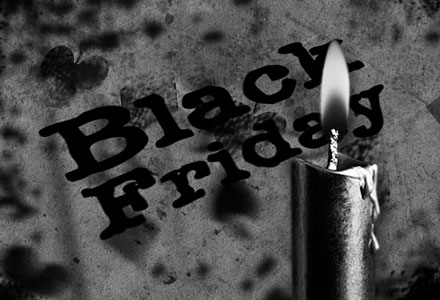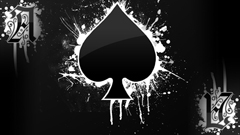 It’s been a great WSOP so far for Canadian poker players. This summer we’re seeing more bracelets won by players from outside the U.S., particularly from our neighbors north of the border. Though they make up just 5.1 percent of all entries in WSOP Events, Canadians have taken home seven of the first 31 events on the schedule, or 22.5 percent of the gold up for grabs. That’s a new record for a foreign country at the WSOP, and the schedule is only halfway complete.
It’s been a great WSOP so far for Canadian poker players. This summer we’re seeing more bracelets won by players from outside the U.S., particularly from our neighbors north of the border. Though they make up just 5.1 percent of all entries in WSOP Events, Canadians have taken home seven of the first 31 events on the schedule, or 22.5 percent of the gold up for grabs. That’s a new record for a foreign country at the WSOP, and the schedule is only halfway complete.
But it’s not just a higher rate of wins by players from outside the U.S. that’s remarkable this summer. The profile of the Americans who are winning bracelets is changing, too, primarily because of the long tail of Black Friday. At the height of the poker boom the profile of a first-time bracelet winner was often the same: he was a young American, sometimes only recently old enough to gain entry to a casino, who picked up most or all of his poker experience playing the game online. Without online poker all but outlawed in the States, young Americans have disappeared from the ranks of WSOP champions.
Those “young gun” bracelet winners still exist today, but they’re far fewer in number and they tend to come from outside the United States. Levi Berger, the 22-year-old Canadian who beat seasoned pro Scott Clements heads-up in Event 11, is a regular at the Commerce Casino in Los Angeles but credited his skills with years spent playing online. Jason Duval, a 23-year-old student from Quebec, earned a win in Event 28 for just his fourth WSOP cash. Jarred Graham, the 24-year old Australian winner of Event 31, also got his start playing online and transitioned to becoming a live cash-game pro. And Martin Finger, the 22-year-old Austrian who won event 21, was an online player before he won the EPT Prague main event in 2011.
So are Americans all washed up? Clearly not. They still win bracelets at a higher clip than any other country in the world. Several of this year’s American winners have been well-known pros with distinguished track records, players like Mike Matusow, Tom Schneider, David Chiu, and Cliff Josephy. Even a lesser-known pro like Athanasios Polychronopoulos was already the owner of a gold bracelet before winning this year. These players and others like them clearly have the skill, knowledge, and experience to take down tournaments against top competition and will be a threat to win anytime they get to a final table.
This year’s first-time American winners have also veered away from the pre-Black Friday template in that they tended to have plenty of live experience. Matt Waxman, winner of Event 7, is a former WPT Paris winner with $2.5 million in career earnings. Brent Wheeler, who won the $1,500 Limit Hold’em event, is a Las Vegas-based pro with a live tournament resume dating back to 2006. Corey Harrison, the college professor from Alabama who won Event 24, is a veteran of the WSOP Circuit. Event 22 champ Joshua Pollack had a WPT Legends of Poker final table and eight previous WSOP cashes to his credit. And Event 4 winner John Beauprez had a deep run in the WSOP Main Event and a runner-up finish in a Heartland Poker Tour main event on his resume.
There have been a handful of American online poker refugees to enjoy success this summer. Chris Dombrowski, the winner of Event 30, had $421K in previous live tournament earnings but is known more for his success online, where he had more than $1.64 million in winnings before Black Friday. Since then, like a small but significant number of American pros, he’s been playing online from Canada. Trevor Pope, winner of Event 2, is another American online pro. He left the country for Costa Rica to keep playing online cash games. Former bracelet winner Dan Kelly also went abroad after the government brought down the boom on online poker; he has 11 cashes already this WSOP, including fourth in the Millionaire Maker tournament, and looks likely to set a new mark for the most cashes in one Series. That these online poker players are now the exception among winners rather than the rule shows just how much things have changed in a few short years.
Online poker was once a fertile ground for training young Americans to excel at the game. It also helped to drive television programming that brought a high baseline awareness of the game to masses of younger players. In online’s absence, poker simply isn’t available as anything other than a home game to many of them – and that makes it much harder to become experienced in tournament play. As we’re seeing this summer, the advantage is tipping away from young Americans and ever more heavily to two groups: their more experienced countrymen, and players from other countries who have the opportunity to legally play online. Throw in a smattering of Americans who were willing to leave their home country just to continue playing poker, and you have the bulk of this year’s bracelet winners.
That’s not a pattern that bodes well for keeping the WSOP balance of power in favor of the U.S. As online poker remains unavailable, the average skill level of players in the States will continue to decline. There will still be great American players. But there will be more great players the rest of the world, where the access Americans once enjoyed is still alive and well, finally turning the WSOP into a true world series. Bad for us, good for all the rest of you.
